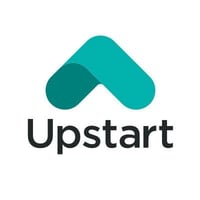all.health is at the forefront of revolutionizing healthcare for millions of patients worldwide. Combining more than 20 years of proprietary wearable technology with clinically relevant signals, all.health connects patients and physicians like never before with continuous, data-driven dialogue. This unique position of daily directed guidance stands to redefine primary care while helping people live happier, healthier, and longer.
Job Summary
- We’re seeking a Bayesian Data Scientist with deep expertise in probabilistic modeling and a strong grasp of modern AI advancements, including foundation models, generative AI, and variational inference. This role is perfect for someone who thrives on solving complex modeling challenges, optimizing predictions under uncertainty, and developing interpretable, high-impact models in real-world systems.You will apply state-of-the-art techniques from Bayesian statistics and modern machine learning to build scalable, efficient, and insightful models—driving real business impact.
Responsibilities
- Translate predictive modeling problems and business constraints into robust Bayesian or probabilistic AI solutions.
- Design and implement reusable libraries of predictive features and probabilistic representations for diverse ML tasks.
- Build and optimize tools for scalable probabilistic inference under memory, latency, and compute constraints.
- Apply and innovate on methods like Bayesian neural networks, variational autoencoders, diffusion models, and Gaussian processes for modern AI use cases.
- Collaborate closely with product, engineering, and business teams to build end-to-end modeling solutions.
- Conduct deep-dive statistical and machine learning analyses, simulations, and experimental design.
- Stay current with emerging trends in generative modeling, causality, uncertainty quantification, and responsible AI.
Requirements/Qualifications:
- Strong experience in Bayesian inference and probabilistic modeling: PGMs, HMMs, GPs, MCMC, variational methods, EM algorithms, etc.
- Proficiency in Python (must) and familiarity with PyMC, NumPyro, TensorFlow Probability, or similar probabilistic programming tools.
- Hands-on experience with classical ML and modern techniques, including deep learning, transformers, diffusion models, and ensemble methods.
- Solid understanding of feature engineering, dimensionality reduction, model construction, validation, and calibration.
- Experience with uncertainty quantification and performance estimation (e.g., cross-validation, bootstrapping, Bayesian credible intervals).
- Familiarity with database and data processing tools (e.g., SQL, MongoDB, Spark, Pandas).
- Ability to translate ambiguous business problems into structured, measurable, and data-driven approaches.
Preferred Qualifications
- M.Sc or PhD in Statistics, Electrical Engineering, Computer Science, Physics, or a related field.
- Background in generative modeling, Bayesian deep learning, signal/image processing, or graph models.
- Experience applying probabilistic models in real-world applications (e.g., recommendation systems, anomaly detection, personalized healthcare, etc.).
- Understanding of modern ML pipelines and MLOps (e.g., MLFlow, Weights & Biases).Experience with recent trends such as foundation models, causal inference, or RL with uncertainty.
- Track record of publishing or presenting work (e.g., NeurIPS, ICML, AISTATS, etc.) is a plus.
What we are looking for:
- Curiosity-driven and research-oriented mindset, with a pragmatic approach to real-world constraints.
- Strong problem-solving skills, especially under uncertainty.
- Comfortable working independently and collaboratively across cross-functional teams.
- Eagerness to stay up to date with the fast-moving AI ecosystem.
- Excellent communication skills to articulate complex technical ideas to diverse audiences.
Top Skills

What We Do
all.health has developed a comprehensive preventative and proactive healthcare platform that combines clinical-grade sensors, machine learning, patient histories, insurance claims data, and other information to provide real-time at-risk screening for several disease conditions; these include acute respiratory infections such as COVID-19, and chronic conditions such as hypertension and diabetes. Contextualized 24/7 data along with clinician input and interventions will then be used to guide positive behavior changes. The premise is to catch various health conditions early and help reverse or manage the negative effects.


.png)





